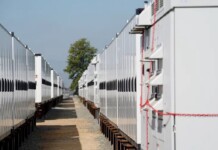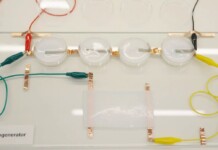When your mom told you to go outside and play — she really did know what was best for you. Just being outdoors or having access to the natural world has been proven to have physical and mental health benefits. And new research has now found that the more diverse and vibrant an ecosystem is, the healthier it is for us.
One of my personal favourite places in the world is Haida Gwaii — the Queen Charlotte Islands — off the coast of British Columbia. The diversity of life there in the cold nutrient-rich waters, on the shorelines and in the old-growth forests, is simply astonishing. I’m hardly alone. Lodges and retreats are popping up all along B.C.’s pristine mid and north coast as people search for places to get away from the stress of their everyday lives.
People gravitate to these kinds of places, they usually say, because they are beautiful, peaceful, or relaxing. Sometimes they will venture as far as calling experiences with these ecosystems uplifting, moving — even spiritual. For others, it’s a feeling that’s difficult to describe in words, but being in nature just somehow makes them feel better.
Although many people may not realize it, there’s actual biological value in having experiences with nature, value that is measurable and quantifiable. It’s long been established that general health, mental fatigue and physical injury all recover faster when patients have access to natural areas. Studies have shown, for example, that surgery patients recover more quickly when they have views of natural landscapes outside their windows, rather than views of bricks and concrete.
Some people attribute this connection with nature to the perceived benefits of having access to fresh air and fewer distractions. But it actually goes much deeper. Famed Harvard ecologist E. O. Wilson calls this connection to the natural world biophilia. It’s a term he coined and it simply means that he believes humans have an innate kinship with other living things.
So I’m sure Dr. Wilson wasn’t the least bit surprised by a recent study published in the science journal Biology Letters. The study found that the psychological benefits of urban greenspaces increase with the diversity of life found in them. Researchers interviewed more than 300 park-goers in the medium-sized city of Sheffield, England, and compared their answers to an analysis of the species richness, or biodiversity, of their parks.
They found that while the overall size of a park influenced the visitor’s perception of how it made them feel, even more important was the diversity of life. Bigger parks made people feel better, yes. But species-rich parks were even more beneficial. In fact, the researchers report that visitors to the greenspaces were actually able to consciously perceive differences in species diversity — especially with plants.
As it turns out, when it comes to our health and well-being, not all parks are created equal. Simply providing a grass field, for example, is likely to be far less beneficial than a natural area with a greater diversity of plant and animal life. We now know that humans are able to, consciously or otherwise, judge the overall diversity and vibrancy of greenspaces. What’s more, the more diverse and vibrant those ecosystems are, the greater their value to humanity in terms of our own personal health and well being.
With three quarters of Canadians now living in urban areas, we must hope that our city planners and municipal politicians are paying attention to this kind of research. It underscores the need to both protect our most diverse ecosystems, and to design our cities to have larger and more green spaces. Ultimately, our health depends on it.
Take the Nature Challenge and learn more at www.davidsuzuki.org.




















I agree you with you 100 percent. It is interesting that we finally are trying to make a come back to real nature not artificial grass nature, next is more awareness of health benefits of all other things that we have taken for granted such as pure air and sun energy during the morning hours, it is all part of having a positive realistic look on life
I loved that, thanks to David.